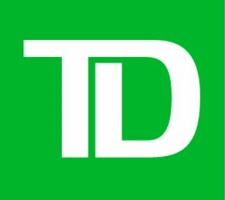@TDAM_Canada
Investor Knowledge + 5 Minutes = Confident Investing
Since Japan's economic bubble burst in the early 1990s, Japanese equites have seen extended periods of under-performance. A glimmer of hope emerged when Shinzo Abe was elected Prime Minister in 2012 with his "three arrows" economic policy, which was based on monetary easing, fiscal stimulus and structural reforms. The first two arrows were quickly deployed and the market reacted positively. The Nikkei and Topix indices almost doubled between 2013 and 2015. The third arrow on structural reform has taken much longer to implement, though.
This makes it an opportune time for investors to reassess their exposure to Japanese equities, according to a recent article by TD Asset Management Inc. called The rebound of Japanese equities: how investors can navigate the tricky market.
The reforms
The Tokyo Stock Exchange (TSE) is comprised of three market segments: Prime, Standard and Growth. The Prime section of the market has the highest requirements for liquidity and corporate governance. The Standard section has lower requirements compared to the Prime market, while the Growth market is for smaller and emerging companies.
In March 2023, the TSE requested all companies listed on the Prime and Standard markets to implement strategic policies that would enhance corporate value by tackling some fundamental issues that have long been regarded as thorns by investors. The main issues plaguing Japanese corporations include low returns and a distorted view of cost of capital, low profitability and valuation, and inefficient balance sheets.
The TSE published a follow-up document in February 2024 to guide the country's corporations in addressing these key issues, which investors expect Japanese CEOs to tackle.1
Implications for investors
These unique characteristics of the Japanese market present challenges, and a manager with experience and insights in the market has an edge. Managing country-specific allocations is difficult to implement for many investors. An alternative way for them to access the market would be through an equity fund that has exposure to Japan.
The information contained herein has been provided by TD Asset Management Inc. and is for information purposes only. The information has been drawn from sources believed to be reliable. The information does not provide financial, legal, tax or investment advice. Particular investment, tax, or trading strategies should be evaluated relative to each individual’s objectives and risk tolerance.
Certain statements in this document may contain forward-looking statements (“FLS”) that are predictive in nature and may include words such as “expects”, “anticipates”, “intends”, “believes”, “estimates” and similar forward-looking expressions or negative versions thereof. FLS are based on current expectations and projections about future general economic, political and relevant market factors, such as interest and foreign exchange rates, equity and capital markets, the general business environment, assuming no changes to tax or other laws or government regulation or catastrophic events. Expectations and projections about future events are inherently subject to risks and uncertainties, which may be unforeseeable. Such expectations and projections may be incorrect in the future. FLS are not guarantees of future performance. Actual events could differ materially from those expressed or implied in any FLS. A number of important factors including those factors set out above can contribute to these digressions. You should avoid placing any reliance on FLS.
TD Asset Management Inc. is a wholly-owned subsidiary of The Toronto-Dominion Bank.
®The TD logo and other TD trademarks are the property of The Toronto-Dominion Bank or its subsidiaries.
 Canada
Canada

